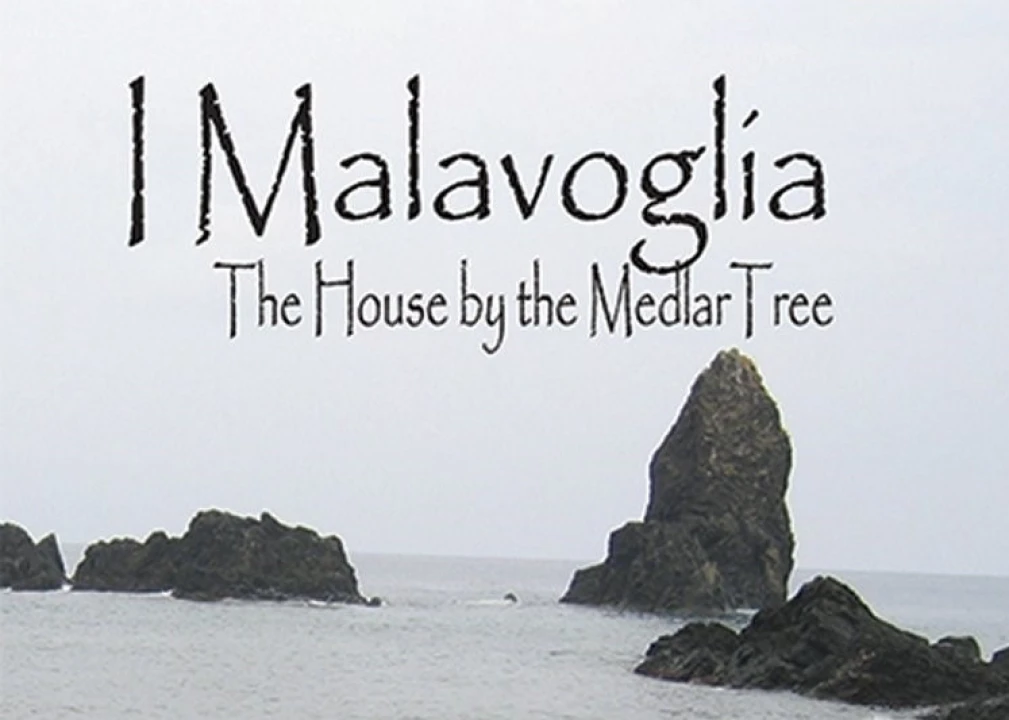Written by Giovanni Verga in 1881, I Malavoglia – also translated as The House by the Medlar Tree – was originally supposed to be part of a 5 books collection – called I Vinti - , of which only this and the second one – Mastro don Gesualdo – were actually written.
In such series, Verga wanted to explore human greed and individuals’ longing to climb the social and economic ladder to conquer what the author defines as “roba” (things, stuff).
Malavoglia is the nickname given to a poor fishermen family from Sicily. Its main components – the old head of the family Padron ‘Ntoni, his daughter in law Maruzza, his grandchildren ‘Ntoni, Lia and Mena – and their vicissitudes, grief and misery are at the core of this story. But most of all, the real protagonist of the story is the town in which it takes place, Aci Trezza, near Catania.
The true name of the family is Toscano, who has to face a series of unfortunate events that threatens their stability and possessions, showing “the cruel clash between human desires and their nonrealization”.
Moreover, the book depicts the society in Southern Italy at that time and its struggles to welcome and adjust to the progress coming from the rest of Europe. Verga makes use of free indirect speech, which allows him to easily insert the voices and perspectives of the characters. In this way, the Malavoglia family and the residents of Aci Trezza provide the simple words and phrasing of the book.
Giovanni Verga (1840–1922) was an Italian realist writer, born into a wealthy family from Catania, Sicily. He started writing when he was a teenager, went on to study law and eventually began publishing his own stories. From 1860 to 1864, he served in the Catania National Guard. Consequently, he travelled to Florence and then moved to Milan in 1872, where he mastered his new approach of using dialogue to develop character.
He has been considered as the major representative of the literary Verism, a movement which aims to produce an impartial and objective narration.
The Toscano family lives in Aci Trezza in the “Nespolo” (Medlar) house. Alongside Padron ‘Ntoni, there are his son Bastianazzo and his five children. The young ‘Ntoni has to depart to pursue military service, leaving the family without one of its main supporters. Therefore, the elder ‘Ntoni decided to acquire a load of lupin to be consequently sold to the market. But, during the trip in the sea, the Malavoglia ship – called la “Provvidenza”, Providence – sinks causing the loss of its cargo and the death of Bastianazzo. Padron ‘Ntoni is now burdened with debts and is forced to sell his Medlar house.
Unfortunately, this is not the end of the bad luck of the family as tragedy continues to fall upon all of them. In fact, Luca dies during a battle; followed by Maruzza who passes away due to a cholera epidemic; ‘Ntoni starts smuggling and gets arrested; Lia leaves town and becomes a prostitute.
Giovanni Verga’s book depicts life and society in the 1860s and the political changes occurring after the annexation to Italy. The author describes with great honesty the struggles this family is going through and the difficulties they encounter when facing the open outside world. The story is “a tragic account of the sort of disquiet visited upon a family . . . by the vague desire for the unknown".




